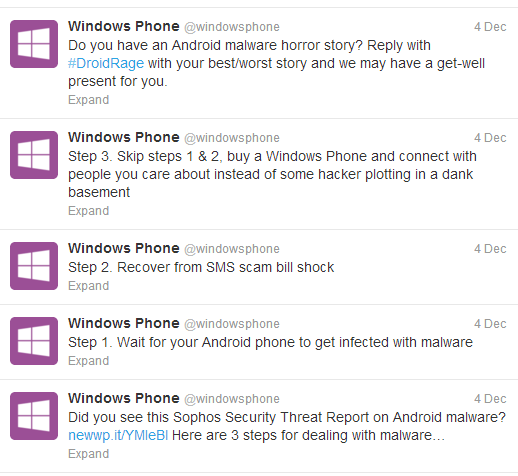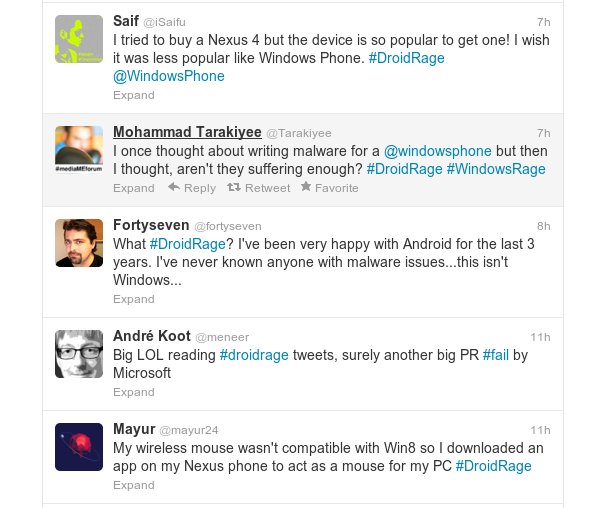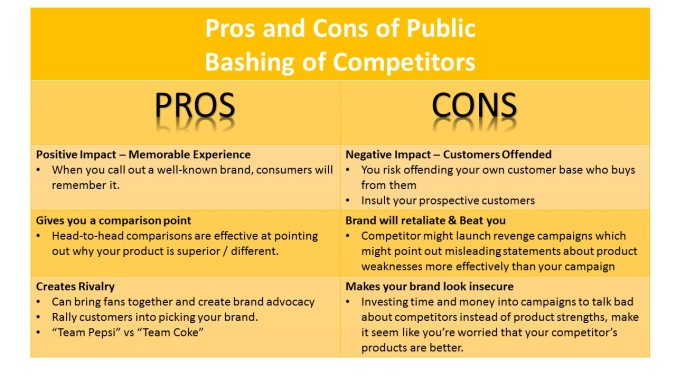Yes, that’s right. We’re living in a world whereby billboards, brochures, newspaper advertisements and TV commercials are getting lesser. We don’t have to compete through voices in order to get the customers to open their wallets anymore.
Indeed, with the increased adoption of digital technologies, marketers have found a gold mine of opportunities for reaching and engaging with their customers.
Bringing you back to my previous post, Networking is an important tool to building an UNIQUE, personal brand. However, this does not implies to just individuals, it does the same for companies, for competitive marketing.
Think that this commercial means nothing? Then you’re wrong. In fact, companies like them have discovered that connecting with people are more important than showing potential customers a 30 seconds reel on product features. Don’t you agree?
However, the content being broadcast to the audiences matters a lot. As marketers, we should be aware not to abuse social media platforms, by unfairly criticizing competitors or their products. This leads to my main point – Public Bashing of Competitors.
In 2012, Windows launched a “Droid Rage” Campaign on Twitter, in an attempt to mock at Android’s vulnerability to malware. Will this campaign really be successful? Check out the tweets below.
Apparently not.
The attempt to bash and humiliate your rival companies directly seems to be a bad idea. Firstly, you turn off your fans as you are revealing an undesirable trait of company elitism. Secondly, your plan will get you backfired, and instead, anger the fans of the rival brands.
Bashing the competition is often considered taboo in marketing. However, are they really a bad thing?
Maybe not.
Of course, making enemies out of your competitors is not recommended. But, there is no doubt that rivalries provide interesting and entertaining marketing ideas. Don’t agree with me? Take a look at the commercial below.
“Simplicty is key – Just drink one sports drink, bro!”
In this commercial, the sports drink brand, PowerAde, is specifically targeting at its rival, Gatorade. Its main aim is to highlight that with PowerAde, you don’t have to drink 3 different drinks on games day anymore. However, this strategy of using friendly humor works!
Just like the world of artists, major brands want to grab their consumer’s attention too. And now, it’s all about the shock factor and outdoing what’s already done.
Here’s the trick – Don’t Blatantly Call Out Your Competitors & Keep Your Ads Tasteful
So, be friends or be foes. You choose.
References:
Guitar – Progressive Insurance Commercial Video: https://www.youtube.com/watch?v=OR8YQ5iLoUI
Amie Marse. (28 May, 2013). 5 Shocking Ways to Call Out Your Competitors. Available at http://www.socialmediatoday.com/content/5-shocking-ways-call-out-your-competitors. Accessed on 9 November, 2015.
Does Bashing Competitors with Attack Ads Really Work? Available on http://www.cyberalert.com/blog/index.php/does-bashing-competitors-with-attack-ads-really-work/. Accessed on 9 November, 2011.
PowerAde Keep It Simple Commercial Video: https://www.youtube.com/watch?v=PDmD5KC2S7g




Hey Tian Yi,
First, let me start of by asking a peculiar question, why did you choose “bashing competitors” as the topic for your blogpost? Secondly, what are your greatest takeaways from this specific topic which might be beneficial to your future prospects? It would be nice if you can state two examples.
Although, I may not share similar sentiments on the advantages of online bashing, I have to credit you for constructing such an insightful table. By contrast, I do agree with the consequences you have presented. Specifically, the third point, “makes your brand look insecure”, organisations bash others because they’re worried that their competitors’ products may carry more value to customers. It is a sign of revealing inferiority, Vanna’s blogpost was offering a comparable take, in her first argument. If you’re captivated to know more, you can take a look at her blog.
Here’s my second question, you specified that online bashing offers organisations with a comparison point. Why do organisations need to bash others to gain a comparison point? Why couldn’t they just offer a quick overview of their product specifications against their competitors’?
Lastly, do you think online bashing and cyber mobbing are the same, or are they two wholly different terms that are referring to different ethical issues.
LikeLike
Hey Ryan,
Thank you for the questions!
In the real world, everyone is so competitive and trying to outperform each other. Be it in school or during work. And this applies to the different companies, who wants to be the leader in that particular industry. Hence, the reason why i chose this topic is because i always wonder if its appropriate to bash the competition. As you know, there are always two sides to a coin. Secondly, from all the research i had done for this topic, i had definitely learnt a lot, especially for someone like me who aspires to be an entrepreneur and digital marketer. Reason being, 1.) To be an entrepreneur, you have to know how to outperform your rivals who started way earlier than you. We want to let the audiences know that we are different from our rivals, and why should they choose us over them. 2.) I believe that it is important for us marketers to understand the competition (SWOT Analysis). And knowing what your competitors are doing definitely helps in building the success of your company.
Answering to your next question, it actually links back to the point i talked about Networking, whereby its important for competitive marketing, and standing out from the rest. In the post above, i shared a commercial video of Progressive Insurance, and it actually says that companies like them realize the importance of connecting with people instead of showing just a 30 seconds reel of the product features. Don’t you agree that audiences will get bored seeing advertisements of companies showing their product features over and over again? If its me, i will, and would want to see something different, which makes them stand out from the rest.
And lastly, i think online bashing through social media and cyber mobbing are NOT the same. I did some research for this question, and found out that this public bashing of competitors is actually known as “Corporate Cyberbullying” (http://mac-how-to.wonderhowto.com/forum/cyberbullying-companies-and-brands-0163744/), which is different from cyber mobbing. On the other hand, Cyber Mobbing involves a group of companies sharing the same malicious mindset or intention.
I hope all these answer your questions! And feel free to let me know your views too!
Tianyi
LikeLike
Hey Tian Yi,
I’ve thoroughly enjoyed reading your blog. Great usage of infographics and interesting videos! You’ve mentioned content marketing is essential these days. Yes, I absolutely agree, but content marketing becomes pointless if it does not reach our intended audience isn’t it? Like you’ve mentioned connecting to our audiences is the key. In this digital era, we are constantly flooded with advertising messages, so perhaps we only have a few secs to capture the attention of our audience so as to get our message to them. Perhaps thats why many companies have resorted to comparative advertising to push their opposition down in order not to lose out? Indeed some campaigns backfired and probably tarnished the brand image as seen from your above example. I would agree with you that adding a little humour in the ad seems more like an effective way to go. If done tastefully, it wont seem unethical and certainly would not negatively affect the brand. Creativity in its humour may in turn create hype for the brand! Hmm, as for friends or not… it depends? If both parties can compliment each other, I suppose being friends can create co-branding opportunities. If not, I guess they probably would remain as foes? Would love to hear your take on this!
Thanks for sharing such an insightful post! 🙂
LikeLike
Good afternoon Tian Yi,
A big thumbs up for topic 4! A really interesting area under competitive marketing. This brings me back to our first module under Dr Hubert. He mentioned that the classification of direct and indirect competitors can be portrayed as a spectrum, like this:
Direct Competition Indirect Competition
My point of view is that the traditional direct competitors are more likely to be engaged in competitive marketing strategies such as Public Bashing to gain a bigger market share and acquire their customers. Just as you mentioned, Windows vs Android and another classic example which I wish to highlight would be Coca cola and Pepsi whom had been competing which each other over a century.
What are your thoughts?
I would also like to mention something which I came across on Vanna’s blog about Samsung fined for purchasing negative comments about competitors. It is possible to get legal charges these days for engaging in such competitive marketing strategies and it would harm a firm’s brand strategy as well. How effective would it be in the long run?
Peace! 🙂
LikeLike
A big thumbs up for topic 4! A really interesting area under competitive marketing. This brings me back to our first module under Dr Hubert. He mentioned that the classification of direct and indirect competitors can be portrayed as a spectrum.
My point of view is that the traditional direct competitors are more likely to be engaged in competitive marketing strategies such as Public Bashing to gain a bigger market share and acquire their customers. Just as you mentioned, Windows vs Android and another classic example which I wish to highlight would be Coca cola and Pepsi whom had been competing which each other over a century.
What are your thoughts?
I would also like to mention something which I came across on Vanna’s blog about Samsung fined for purchasing negative comments about competitors. It is possible to get legal charges these days for engaging in such competitive marketing strategies and it would harm a firm’s brand strategy as well. How effective would it be in the long run?
Peace! 🙂
LikeLike
Hi Tian yi,
I think your post could be better constructed if you had elaborated more on aggressive advertisement.
Which can be interpreted as advertisement that builds upon destroying the competition.
It’s like the rivalry between Coca-cola company and Pepsi.
If done properly, it could serve the marketing campaign well.
But if done incorrectly, it could even attract a negative backlash from the public.
But of course, isn’t the job of the marketing department to increase market share?
In a market where there are a lot of similar products by competitors, this becomes more difficult.
Supply increases yet demand remains constant.
What would you do in order to attract attention and increase sales?
After reading quite a few posts on advertising ethics, i realised one thing.
Many strategies used seems to be deemed unethical.
Eg, Paying food bloggers to give a favourable post.
But the line between ethical and unethical is a rather fine line.
Some might even say chicken farming is unethical. Get what I mean?
Who determines what is right and what is wrong?
Sometimes we do have to go down the “unethical” approach.
So if you think about it, is online bashing” really unethical?
Edward
LikeLike
Pingback: Fair Play | Thoughts
Pingback: Review of Topic 4: Should we embrace firms using social media unethically? | Life of Pat
Pingback: Reflective Summary (Censorship On Social Media) | CARPE DIEM